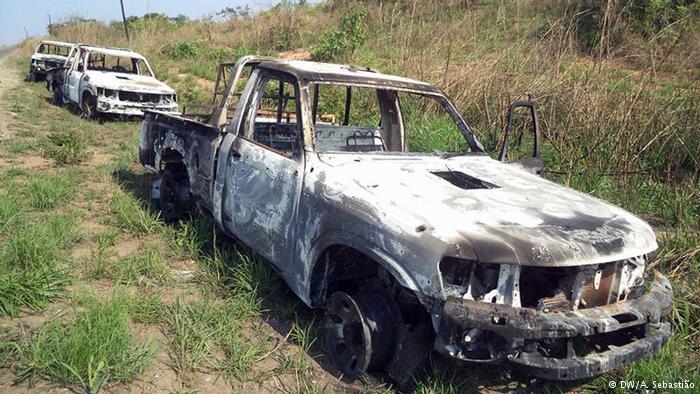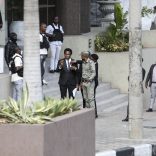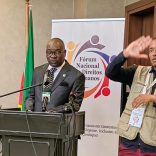Mozambique: Mondlane charged with "incitement to terrorism" - AIM report
Reconciliation is required before peace talks in Mozambique – Silvestre Baessa

DW / Leader of Renamo delegation’s car destroyed in military attack in September 2015
In Mozambique, Frelimo and Renamo have opted for war in the bush and diplomacy in the city as a means of ending the current political crisis, and distrust still reigns between the warring parties.
DW Africa interviewed Mozambican governance expert Silvestre Baessa on this abiding paradox.
DW Africa: Is there any reason for this paradoxical action? War on the one hand, and the resumption of dialogue on the other?
Silvestre Baessa (SB): I think not, and in this very particular moment there is a clear rekindling of the fighting. It is part of the strategy of both parties to come to the negotiating table in a position of strength. So you will notice that from the time that the teams to discuss the terms of reference were mandated, both sides have been increasing their activities. In principle the terms of reference will be drafted soon and approved and until then it is important what will be discussed and how.

DW Africa: And you think that there can be fruitful negotiations under these conditions?
SB: We have two new elements. The first is the fact that these operations, which appear to be short-lived and that would result in the elimination of the military wing of Renamo, have had no effect. We recall that this offensive against Renamo’s military wing began almost at the time as the assassination attempts on the [Renamo] president, the attacks on his convoy and later the assault on his residence in the city of Beira. And it has been some time since then and there are no significant successes on the battlefield.
So I also believe it is an attempt by the less bellicose wing within the Frelimo government to recover some role, because time for the military option does not seem to be working. So we need to try again give dialogue a chance.
The second element, which is connected to the first, is that the country at this time is not able to support a war. A war of this nature has very high financial and economic costs and the financial and economic condition of the country does not allow us to be involved in more than two or three wars. The big question over dialogue at this point is that trust is never fully restored by these processes, so peace in Mozambique is beginning to look like as a break between wars.
DW Africa: You spoke of a lack of confidence, a situation that in fact is not new. Do you think Mozambique needs reconciliation and forgiveness before launching any dialogue, like South Africa, for example?
SB: I think so. This is one of the pieces that was possibly missing from the General Peace Agreement. It would be a moment for deeper reflection. Note that, among the various sectors within the government and the [ruling] party, some still do not recognize Renamo, and continue to see it as an apartheid instrument, even though apartheid is long finished. While this kind of thinking persists, the integration of Renamo into the state structure, not just through parliament, but as an institution, a party with state responsibility, will not happen without overcoming the ghosts of the past. So this indeed is the big challenge.













Leave a Reply
Be the First to Comment!
You must be logged in to post a comment.
You must be logged in to post a comment.